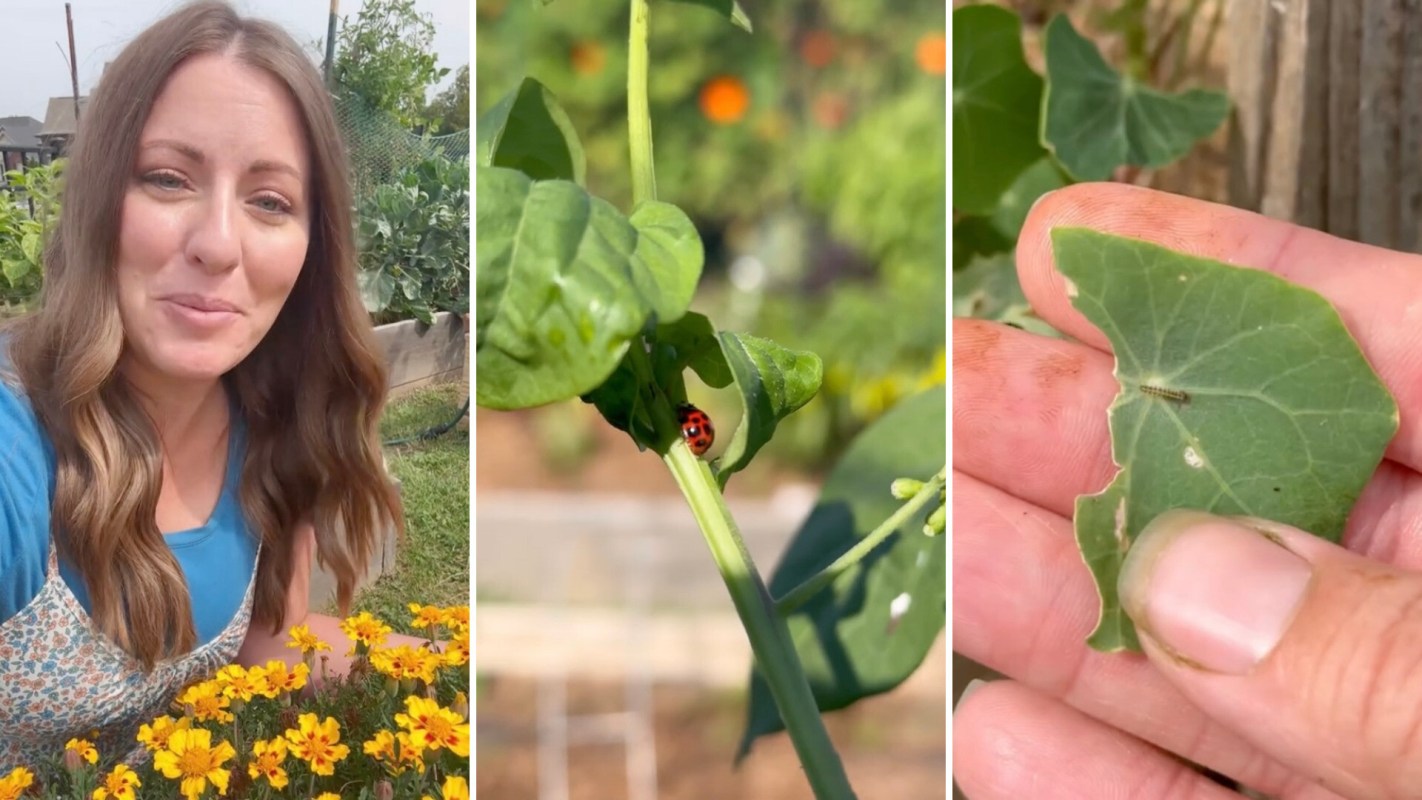Looking for a simple way to keep pests at bay in your vegetable garden without resorting to harsh chemicals? The solution might be right under your nose — or rather, right next to your veggies.
Planting flowers alongside your fruits and vegetables can be a game-changer for natural pest control.
The scoop
Gardening pro Jessica (@fromdreamtoseed) recently shared her top tips for using flowers to attract beneficial insects that prey on common garden pests.
@fromdreamtoseed Want some natural pest control in your vegetable garden? Plant flowers! They not only bring in pollinators that increase fruit and vegetable yields, but they also attract natural pest predators. #vegetablegarden #organicgardening #organicpestcontrol #naturalpestcontrol #companionplanting #gardentips ♬ Acoustic Folk Instrumental - Yunusta
In her TikTok video, she explained: "Planting flowers next to your vegetables is a great way to attract pollinators and increase your harvest. But did you also know they can attract natural predators that help control pests?"
According to Jessica, flowers including dwarf cosmos, French marigolds, and nasturtium are especially effective at drawing in pest-munching allies such as lacewings, lady beetles, and parasitic wasps.
Even flowering herbs such as basil, dill, fennel, and lavender can help deter unwanted critters while attracting beneficial bugs.
Watch now: Alex Honnold test drives his new Rivian
"Dwarf cosmos are beautiful. They're low-growing and they attract a lot of those natural pest predators," Jessica noted. "French marigolds are super easy to grow, and their strong scent can help deter pests. They're also fairly deer-resistant."
As for nasturtium, Jessica recommended growing it in spring and fall.
"It's highly attractive to pests, which means they're eating this and not your other plants," she said.
How it's helping
Not only is companion planting with flowers a chemical-free approach to pest management, but it can also save you precious time. By letting nature do the heavy lifting, you'll spend less time battling pests and more time enjoying your thriving garden.
What's more, growing your own fruits, veggies, and herbs can work wonders for your wallet and the planet. Homegrown produce means less reliance on store-bought foods that contribute to a large amount of transportation pollution. Plus, tending to your garden is a proven mood-booster and stress-buster.
Gardening has been shown to reduce stress, anxiety, and depression while improving life satisfaction. It's also a fun way to squeeze in low-impact exercise and soak up that mood-enhancing vitamin D.
What everyone's saying
Jessica's flower-power hack struck a chord with her followers.
The comments section bloomed with excited replies, including, "My favorite is watching the ladybugs come in bc they notice the ants farming the aphids" and "Love the information."
The bottom line? Planting flowers could be your secret weapon for a gorgeous, abundant vegetable garden without the need for toxic pesticides. Mother Earth will thank you, and your grocery budget just might, too.
Join our free newsletter for easy tips to save more, waste less, and help yourself while helping the planet.









